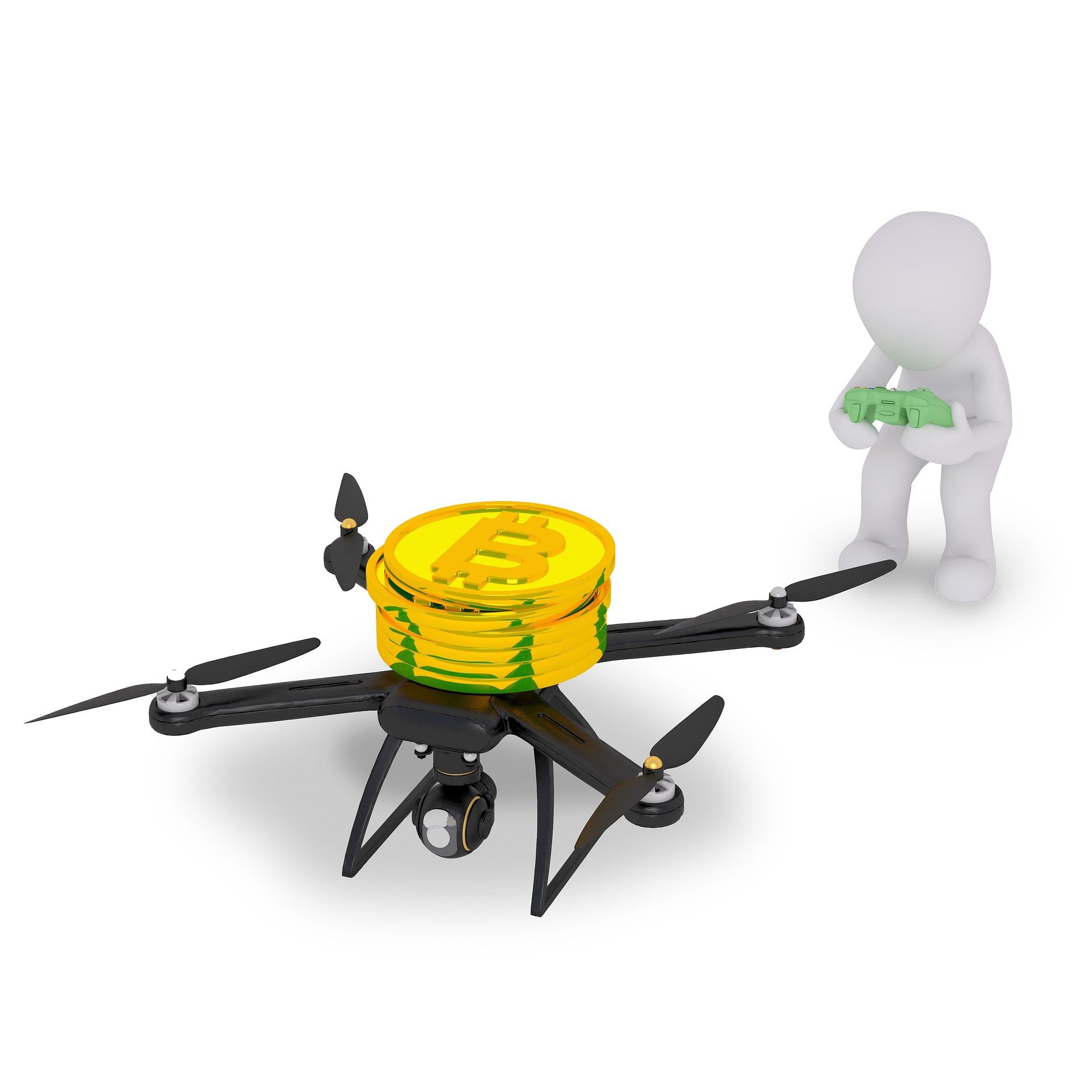What Role Do AI and Biometrics Play in Modern Crypto Wallets?

The digital financial ecosystem is evolving at an unprecedented pace. With the increasing adoption of cryptocurrencies worldwide, there is a greater need for advanced, secure, and intelligent crypto wallets. Modern users are no longer satisfied with basic transaction functionalities—they demand smarter systems that can predict, protect, and personalize their experiences. This is where Artificial Intelligence (AI) and biometric technologies come into play, revolutionizing the landscape of Cryptocurrency Wallet Development.
These technologies are no longer optional features—they are becoming core components of next-generation crypto wallets that are secure, user-friendly, and future-ready. Let’s explore how AI and biometrics are shaping the crypto wallet industry and what that means for the future of digital finance.
AI in Crypto Wallets: Smarter, Safer, and More Personalized
AI is transforming how wallets process information, interpret user behavior, and respond to real-time market changes. In traditional wallet applications, user interaction was largely manual and reactive. With AI integration, wallets now exhibit proactive intelligence and automation.
Predictive Analytics and Smart Transaction Suggestions
AI allows wallets to analyze historical transaction data, spending patterns, and behavioral habits to offer personalized suggestions. For example, if a user frequently transfers crypto to a certain wallet on specific days, the AI can prompt reminders, automate the process, or suggest optimal transaction times based on network congestion and gas fees.
Fraud Detection and Risk Assessment
AI-powered wallets continuously monitor for unusual patterns such as repeated failed login attempts, transactions from unusual IP locations, or abnormal spending behavior. These patterns can trigger instant alerts or freeze transactions until identity is verified, effectively mitigating fraudulent activities.
Additionally, AI-based risk assessment engines evaluate the credibility of incoming transactions, smart contracts, or tokens. This helps users avoid scams, phishing attempts, or interacting with malicious smart contracts.
Conversational Interfaces and Virtual Assistants
Many AI-driven wallets are now integrating chatbot assistants and natural language processing. These allow users to inquire about their balances, portfolio performance, or transaction status using voice or text, making user interaction more natural and accessible, especially for new adopters.
Biometrics: Securing Wallet Access with Human Uniqueness
While AI ensures smart processing, biometrics focuses on unbreachable access control. The most common biometric authentication methods in crypto wallets include fingerprint scanning, facial recognition, voice verification, and iris scanning.
Enhanced Security and Identity Verification
Unlike passwords or PINs that can be guessed, stolen, or leaked, biometric authentication is based on unique human traits that are nearly impossible to replicate. This makes it an ideal solution for securing wallets against unauthorized access.
For instance, many mobile crypto wallets now require fingerprint or facial recognition before allowing access to sensitive features such as sending funds or viewing private keys. Some wallets go a step further by integrating multi-modal biometrics, such as requiring both facial and voice recognition, for highly secure transactions.
Convenience and Frictionless User Experience
Biometric authentication doesn’t just add security—it also simplifies the user experience. Users no longer need to remember long, complex passwords or type in seed phrases repeatedly. A simple glance at the screen or a touch of the finger can unlock the wallet, authorize a transaction, or confirm identity.
This streamlined access reduces friction, particularly for everyday crypto users and mobile-first investors, enhancing both accessibility and adoption.
The Intersection of AI and Biometrics: A Powerful Duo
When AI and biometrics are combined in a crypto wallet, the result is a dynamic and adaptive security system that can learn, respond, and evolve over time.
Imagine a scenario where a wallet not only uses biometric facial recognition to authenticate a user, but also checks the user’s usual behavior patterns—like transaction frequency, geolocation, and device ID. If anything seems unusual (say, logging in from a foreign country or sending an unusually large amount of crypto), the AI can flag the action and require multiple biometric confirmations or even a manual override.
Such intelligent, layered security frameworks reduce the chance of successful breaches and instill greater confidence among users.
Challenges and Considerations
Despite the immense potential, integrating AI and biometrics into crypto wallets is not without challenges.
Privacy and Data Storage
Biometric data is extremely sensitive. If improperly stored or mishandled, it can be exploited just like other forms of digital data. That’s why it’s crucial for developers to implement secure, decentralized storage of biometric identifiers and ensure that data never leaves the user’s device unless encrypted.
AI Bias and Algorithm Transparency
AI systems are only as good as the data they’re trained on. If not managed properly, they can exhibit bias, misclassify transactions, or generate false positives. Wallet developers must ensure transparent and accountable AI processes that are regularly tested and updated.
Regulatory Compliance
As governments and regulators start to tighten control over digital assets, AI and biometric systems must align with evolving compliance frameworks, such as GDPR in Europe or India's Digital Personal Data Protection Act. This includes ensuring user consent for data collection, the right to opt out, and data portability.
Future Trends: Where Are We Headed?
The future of crypto wallets lies in greater autonomy, personalization, and trust. As decentralized finance (DeFi), NFTs, and metaverse economies grow, wallets will become more than just digital lockers—they’ll serve as intelligent identity hubs and control centers.
We can expect to see:
- AI systems capable of autonomous portfolio balancing based on risk preferences.
- Voice-activated wallets with multi-language support and accessibility features.
- Biometric-backed decentralized identity (DID) systems for login across multiple dApps.
- Real-time fraud prevention engines powered by machine learning and behavior analytics.
In this next phase of evolution, user-centric design will be critical, blending security with seamless experiences.
Conclusion
AI and biometrics are no longer futuristic features—they are essential components of modern cryptocurrency wallets. Together, they empower wallets to be more secure, adaptive, and user-friendly. As threats in the digital world grow more sophisticated, so too must the tools we use to protect our assets.
For businesses and startups looking to build next-generation wallets, integrating these technologies is a must. As a leading Cryptocurrency Wallet Development Company, WisewayTec delivers secure, AI-enabled, and biometric-ready wallet solutions tailored for the modern crypto user. Whether you're launching a new DeFi app or upgrading your existing platform, we provide the expertise to bring your vision to life.
Frequently Asked Questions (FAQs)
What is the benefit of using AI in a crypto wallet?
AI enhances a crypto wallet's functionality by providing intelligent suggestions, detecting fraud, personalizing user experience, and automating routine tasks. It helps users make safer, faster, and smarter financial decisions.
How do biometrics improve crypto wallet security?
Biometrics use unique human features such as fingerprints or facial recognition to authenticate users. This makes unauthorized access nearly impossible, adding a powerful layer of security to crypto wallets.
Can biometric data be hacked?
If stored insecurely, biometric data can be vulnerable. However, most modern wallets use encrypted, device-based storage and decentralized protocols to minimize this risk. Choosing a trusted wallet provider is essential.
Is AI in crypto wallets safe and unbiased?
While AI improves efficiency, it's only as safe as its design and training data. Developers must ensure ethical data practices, continuous learning updates, and transparency to reduce bias and maintain security.
What makes WisewayTec different as a wallet development company?
WisewayTec specializes in building intelligent and secure wallet solutions with AI and biometric integration. Our custom wallet services cater to diverse use cases, from DeFi to enterprise finance, focusing on innovation, reliability, and compliance.








